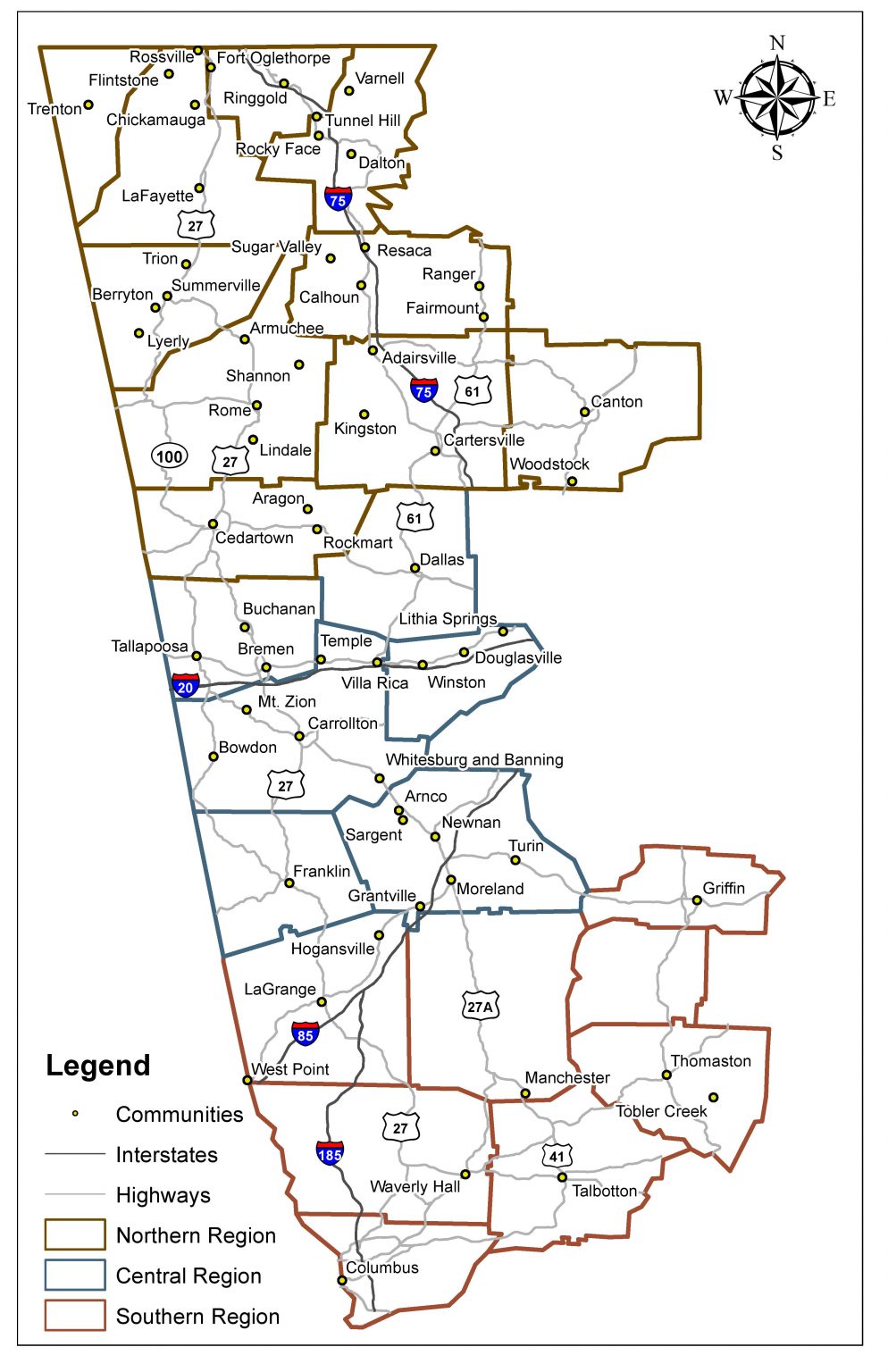This agricultural-turned-textile industry town boasted both a railroad and cotton mills.
Summerville was originally known for being an agricultural community but soon transitioned into a textile town. The first textile mill opened in this area in 1907, just eight years after the arrival of the first railroad. While portions of some of the old mills are still visible, Mohawk Industries is the only textile-related company that still operates within Summerville to this day.
Visit
Things to Do
- The Crushed Tomato, 205 Montgomery Street: Grab a slice at this pizzeria, which happens to be in one of the last remaining portions of Summerville Cotton Mill!
Places to See
The following properties are not open to the public, but you can view them from the exterior to learn more about the buildings that supported the textile industry here.
- Montgomery Knitting Mill, 10005 Commerce Street: This historic knitting mill still stands and is located downtown.
- Summerville Cotton Mill, 194b South Penn Street: This piece of private property once served as an entrance to Summerville Cotton Mill. It stands directly adjacent to The Crushed Tomato, together they form the last remaining pieces of Summerville Cotton Mill.
History

Established in 1839 as the seat of Chattooga County and propelled by the arrival of the railroad in 1899, Summerville transitioned from a primarily agricultural area to a textile town. Known as the Historic commercial center of Chattooga County, Summerville’s first cotton mill opened in 1907 to produce duck, osnaburgs, awning cloth, and other heavy cotton goods. Operating both day and night by 1916, Summerville Cotton Mill proved early on to be a prosperous enterprise. Enlarged in 1923, the mill produced three times its initial capacity.
By 1917, the Summerville Mill village contained seventy homes on large lots and a church. The mill village boasted concrete sidewalks and its own waterworks system, with twenty of the residents owning their own home. A dedicated 75-acre plot of mill land served as a gardening space, an important aspect of mill village life, and almost every family kept a cow or a pig. The mill owners provided an African American groundskeeper and a mule to keep the grounds maintained for the mill operatives.
Bankrupt by 1935 and auctioned in 1938, Summerville Cotton Mill changed ownership several times. However, World War II brought the mill back into production through the manufacturing of fabric for military uniforms. The mill remained a major county employer for years after. By the 1980s, the mill ceased production and started demolishing most of the mill buildings.

Several other mills operated in Summerville as well including Montgomery Knitting Mills manufacturer of children’s novelty hose, which opened in 1927. In 1950, Bigelow-Sanford, one of the largest carpet companies in the country, acquired the Georgia Rug Mill Inc. of Summerville and added a 40,000 square foot addition to the building in 1951. Later, the Georgia Rug Mill became part of Mohawk with their acquisition of Bigelow-Sanford in 1993. Carrying on the textile heritage tradition, Mohawk continues to be a major employer in the Summerville area.
Charter Trail Members
Resources to Explore
Click on the following links to learn more about this region.
- Facts for Kids
- Digital Library of Georgia
- Georgia Archives Virtual Vault
- Georgia Historical Society
- Chattooga County, New Georgia Encyclopedia
Back to Community List
Email the Trail at wgtht@westga.edu or visit our Contact Us page for more information.
